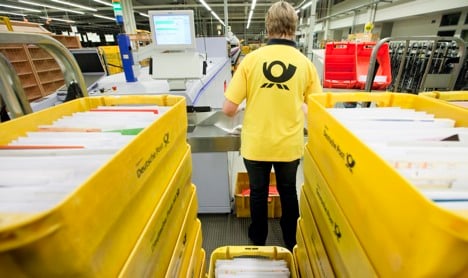Company boss Frank Appel is hoping to convince politicians that Deutsche Post needs to raise its charges to compete with the private sector, even though the conditions for an increase have not been met.
According to regulations, the company is only allowed to raise its fees when inflation is strong. But Appel told Berliner Zeitung newspaper that politicians should consider postal charges “more flexibly, and in line with actual market forces.” A review of the current charges is scheduled for 2012.
The cost of sending a standard letter has not been raised in Germany for 13 years, and was actually lowered to 55 cents in 2003. But Deutsche Post has already called for an annual inflation-adjusted re-assessment of postage charges.
Appel argued that the current regulation only made sense in an era when the volume of post was constantly rising. This is no longer the case. “Nowadays the postman only puts one letter in the box, when before he put two. That costs us money,” he said.
Appel also said that Deutsche Post’s legal obligation to deliver mail six days a week was only of limited value for the customer. “Things that are posted on Friday, we deliver on Saturday, while private companies don’t deliver at the weekend,” he told the newspaper. But he added that there were no plans to cut back delivery schedules to five days a week.
Deutsche Post chairman Jürgen Gerdes is currently travelling around the country girding the company’s 143,000 employees to the projected cutbacks. “We face huge challenges, and we have to put a brake on our expenses,” Gerdes told news magazine Focus.
The company is currently preparing a cost-cutting package meant to keep its profits at over €1 billion per year for the foreseeable future.



 Please whitelist us to continue reading.
Please whitelist us to continue reading.
Member comments